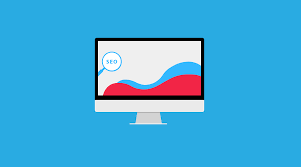Level Up Your Website With These Proven SEO Strategies
Introduction:
You've worked hard on your website. You've made it look great, and it's full of valuable content. But how can you make sure that people see it? How can you make sure that your website ranks high on search engines?
Ranking high on search engines is no easy task, but with a little effort and these proven SEO strategies, you can give your website the edge it needs to stand out from the competition.
What Is SEO and Why Is It Important?
SEO, or search engine optimization, is the practice of increasing the quantity and quality of traffic to your website from search engines. It's one of the most important tactics for any business that wants to grow online.
Think about it: when someone searches for a product or service that you offer, you want your business to be at the top of the results. That's where SEO comes in. By optimizing your website for search engines, you can improve your ranking and bring more traffic to your site.
That's why SEO is so important: it helps you reach more potential customers and grow your business. And the best part is, it's a tactic that can be learned by anyone. With these SEO tips and tricks, you can start improving your ranking today.
Doing Keyword Research:
Before you start writing, it's important that you do your research and find the right keywords to target. This will help you structure your content in a way that will help it rank higher in search results.
There are a few different ways to do this. You can use Google's Keyword Planner tool, or a tool like SEMrush or Ahrefs to find keywords that are being searched for the most. You can also use Google Trends to see how popular a keyword is over time.
Once you've found a few good keywords, make sure to use them throughout your content. You can use them in the title, the body, and even the meta description. But don't overuse them—Google may penalize you if they think you're trying to manipulate your search results.
Optimizing Page Titles, Descriptions, and URL:
When you're optimizing your website for SEO, it's important to pay attention to every detail. One of the most important is your page titles, descriptions, and URLs.
Page titles should be short and sweet, but also keyword-rich. Make sure to use your target keywords in your titles, and add modifiers like "tips" or "tricks" to make them even more relevant. The same goes for your page description, use keywords to describe what your page is about, and make sure it's enticing enough to get people to click through.
Your URLs should also be keyword-rich, and easy to remember. If people can remember the URL, they're more likely to share it with others. So make sure they're relevant and easy to remember!
Creating SEO Friendly Content:
Content is still king when it comes to SEO, but the type of content you create matters, too. Gone are the days when you could stuff a keyword a hundred times into an article and call it a day—those days will get you penalized by Google, fast.
Instead, focus on creating high-quality, well-researched content that's relevant to your target audience. That means writing articles, blog posts, and even social media posts that are informative, helpful, and engaging.
When it comes to keywords, use them sparingly and strategically. Use them in a way that sounds natural and makes sense for the reader—don't force them in just for the sake of using them.
Oh, and one more thing: make sure your website is mobile-friendly. Google now uses mobile-first indexing, which means they're primarily looking at the mobile version of your site to determine your ranking. So if your website isn't optimized for mobile devices, you're going to have a hard time ranking in search results.
Increasing Site Loading Speed:
If your site takes more than a few seconds to load, you’re going to lose visitors. And not only that, but Google also takes loading speed into account when determining where to rank your site. So if you want to improve your SEO, you need to work on increasing your site’s loading speed.
Here are a few tips:
- Use a content delivery network (CDN). A CDN is a network of servers that delivers content to users based on their geographic location. This means that users in different parts of the world will be able to access your content faster.
- Optimize your images. Large images can slow down your site, so make sure to optimize them for the web. You can do this by reducing the file size without sacrificing quality.
- Minimize HTTP requests. An HTTP request is made every time a user tries to access a file on your server. So the fewer files you have, the fewer HTTP requests will be made, and the faster your site will load.
Using Internal and External Links for SEO:
One of the most effective things you can do to improve your website's SEO is to use internal and external links.
Internal links are links that go from one page on your website to another page on your website. They help search engines understand the structure of your website and they help visitors navigate your website.
External links are links that go from your website to another website. They help search engines understand what other websites think of your website and they can help improve your website's ranking.
To get the most benefit from internal and external links, make sure to use keyword-rich anchor text and to link to high-quality websites.
Conclusion:
So, those are our top tips for SEO! As you can see, it is not as hard as you might think to level up your website with these tried and tested techniques. But it iss important to remember that SEO is an ongoing process, so you need to keep up with the latest trends and changes if you want to stay ahead of the competition.
Thankfully, our team at Company is always on top of the latest SEO developments, so we can help you keep your website in top shape. Do not hesitate to get in touch if you need help with your SEO strategy!



